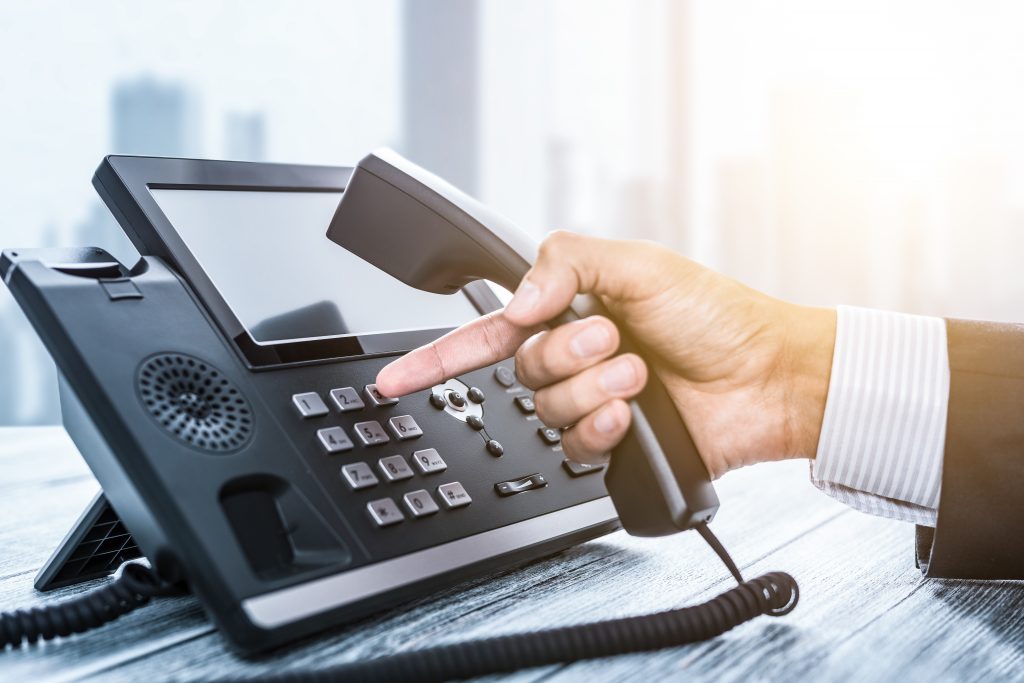How a Business Should Handle Covid-19 Robocalls
Scammer and scam organizations are currently using Covid-19 and the uncertainty of our economy to prey upon the fears of the public for profit. The Lawyers of Distinction teams, along with our members, have received a variety of different robocall scams and we will dissect a few of the most common ones to help you respond should you find your business receiving such a call.

Robocall scams are not new and the FCC and FTC have tried for years to combat their prevalence. The scammers operating these calls utilize advanced auto-dialers which have the capacity to dial thousands of customers rapidly and with spoofed caller-ID. Caller-ID spoofing allows a scammer to use any number they want to be displayed on caller-ID. By spoofing the numbers of legitimate organizations, the robocall will attempt to sound genuine and legitimate. They are a serious threat to your team productivity
. Below is a list of Covid-19 robocalls that will help illustrate the type of scams being proliferated:
- Fake Testing: These scams often target individuals who are uninsured or on Medicare. The caller purports to offer free Covid-19 testing or offers such tests for sale. Again the aim here is to collect personal or payment information from the public. If you need to be tested for Covid-19 please contact your local health department and they can assist you in finding legitimate testing facilities.
- Fake Cures: Some robocall scams are calling members of the public claiming to have a curative or preventative measure for sale. Currently there is no known cure for Covid-19. Treatment of the virus relies on being able to treat individual symptoms while the patient recovers. Another variation of this type of scam is to offer a service or product that assists in preventing the coronavirus disease such as in-depth HVAC cleaning or specialized air filters or purifiers. Do not provide any identifying or payment information to such a caller.
- Debt Consolidation: During these uncertain times, people may be facing unprecedented levels of financial hardship due to Covid-19. These financial difficulties allow for scammers to prey upon the desperate by offering sham debt consolidation or student loan repayment. The goal of the scammer is to get the victim to pay what they think is a smaller amount which will cover their In the meantime, the scammer is pocketing these funds and not using them to make the debt repayments.
- Insurance Schemes: These robocalls focus on offering low-cost health insurance to people who have recently lost their employment or are currently uninsured. They prey on the fear of contracting Covid-19 and collect money to pay for fake or substandard insurance.
- Social Security Scams: With the Covid-19 stimulus measures, many Americans are receiving stimulus funds to assist them during the pandemic. These calls impersonate the Social Security Administration or IRS and attempt to phish payment information such as account and routing numbers and other personal information such as social security numbers and date of birth. This information will be used to make fraudulent charges using the victim’s bank accounts or to assist in identity theft.
Now that we have outlined a variety of robocall scams to lookout for, you can look at firms like Lawyers of Distinction
that provide advice, tips and best-practices to avoid falling victim to such scams such as:
- Hang-up: If you find yourself on the phone with a robocall or with an organization or individual you do not recognize, simply disconnect the call. Do not press any buttons other than the disconnect key. Do not follow any prompts given to you during the call.
- Never Provide Personal Information: Do not provide personal information to a robocall. This includes your date of birth, social security information, financial information, and passwords or usernames.
- Do Not Trust Caller-ID: As mentioned above, caller-id can be spoofed using current technology. Government and financial institutions will not cold-call you to verify personal information.
- Report: Report all robocalls to the FTC and FCC so that the perpetrators of such tactics can be tracked down and brought to justice.
During this difficult and confusing time, please have your business employ the tips above to avoid falling prey to a Covid-19 related scam or robocall. Any information regarding Covid-19 can be found at www.CDC.gov and information regarding current Covid-19 scams and robocalls can be found at www.FTC.gov.

